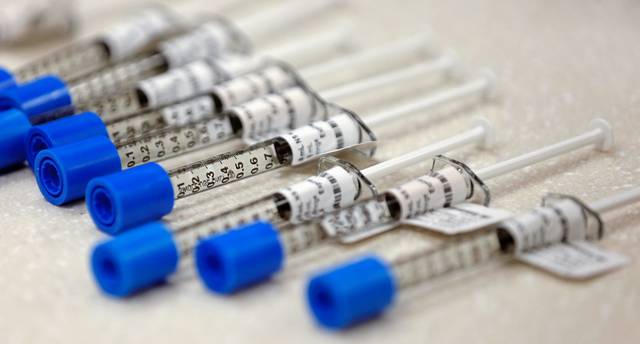President Trump’s October 2017 national declaration to combat widespread deaths related to opioid abuse promised swift and pragmatic solutions. After all, drug overdoses killed a record-breaking 72,300 Americans during 2017, a 10% increase from 2016. This equates to more than the yearly death tolls from HIV, car crashes and gun deaths combined.
To end the opioid crisis here in the Keystone State and across the nation, law enforcement and public health officials should engage opioid manufacturers on treatment and prevention solutions and focus their efforts on stopping the foreign drug invasion.
The manufacturers of opioids are right to be held responsible as part of the solution, and Attorney General Josh Shapiro and three other state attorneys general recently took steps to make that a reality. They have proposed a $48 billion settlement with five opioid drug makers that would resolve litigation in all 50 states and the District of Columbia. Under the agreement, these manufacturers would provide $22.25 billion for treatment, telehealth and community paramedic services. An additional $25.5 billion would go toward medication-assisted treatment for addiction, and $500 million would be used to set up a data clearinghouse for the purchase and sale of opioids.
According to the Substance Abuse and Mental Health Services Administration , fewer than one in 10 Americans suffering from a substance abuse disorder receive treatment. Changes to the addiction treatment infrastructure and coordinated treatment solutions will be key to providing lifesaving treatment to Americans in need.
Settlements such as this are the most effective way to make that happen. Enlisting opioid manufacturers to create and pay for treatment and prevention solutions will circumvent expensive government bureaucracies and provide better treatment for Pennsylvanians.
A settlement such as this will also free up law enforcement resources currently tied up in litigation to go after the Mexican drug cartels and Chinese drug makers who are flooding the U.S. with inexpensive illicit fentanyl. This synthetic opioid is more potent than morphine and is a major driver of the recent rise in overdose deaths.
Though the abuse of prescription opioids has long been blamed, the data is not as conclusive. In fact, deaths from prescription opioids have started to decline in recent years. Meanwhile, recent data from the Centers for Disease Control and Prevention has found that deaths from illegal street fentanyl increased 520% from 2013 to 2016.
Yet, though illegal opioids from foreign countries seem to be the greater threat, many politicians have chosen to focus on scoring political points and quick paydays from lawsuits against legal drug manufacturers. As a result, almost 75% of the opioid-related deaths in 2016 were caused by illicit fentanyl and heroin.
In order to create a realistic, long-lasting and effective prevention plan, we need to end the flow of illicit drugs into the country while bolstering addiction treatment programs. Any litigation or regulation needs to address the real problem of providing care for those who have been impacted by addiction.
Our current opioid crisis is widespread and far-reaching, and it will not go away on its own.
Gary Alexander served as Human Services secretary for Pennsylvania from 2011-13.








